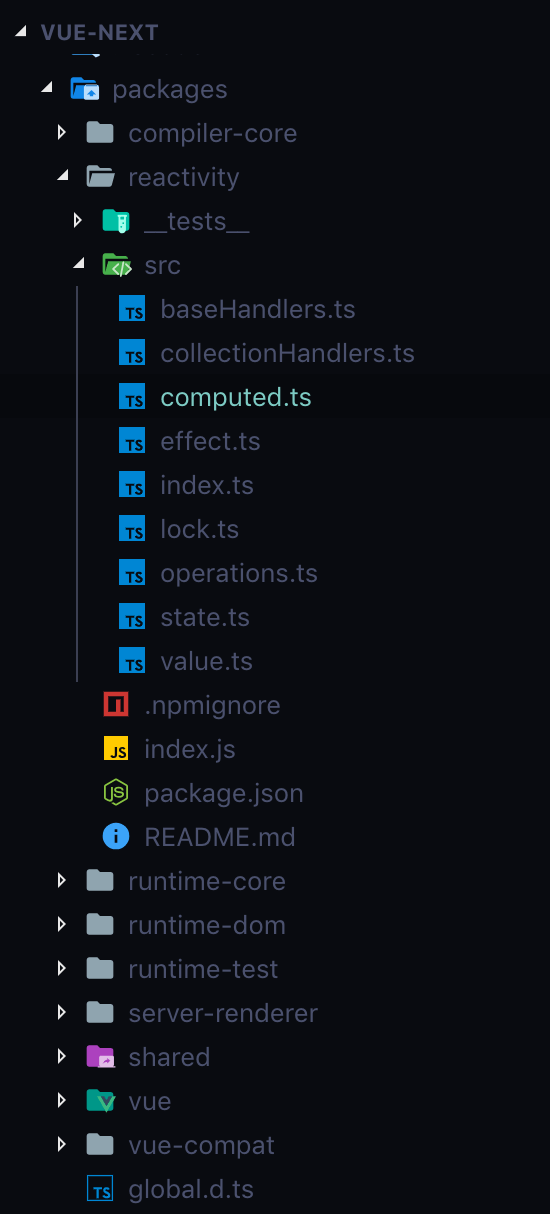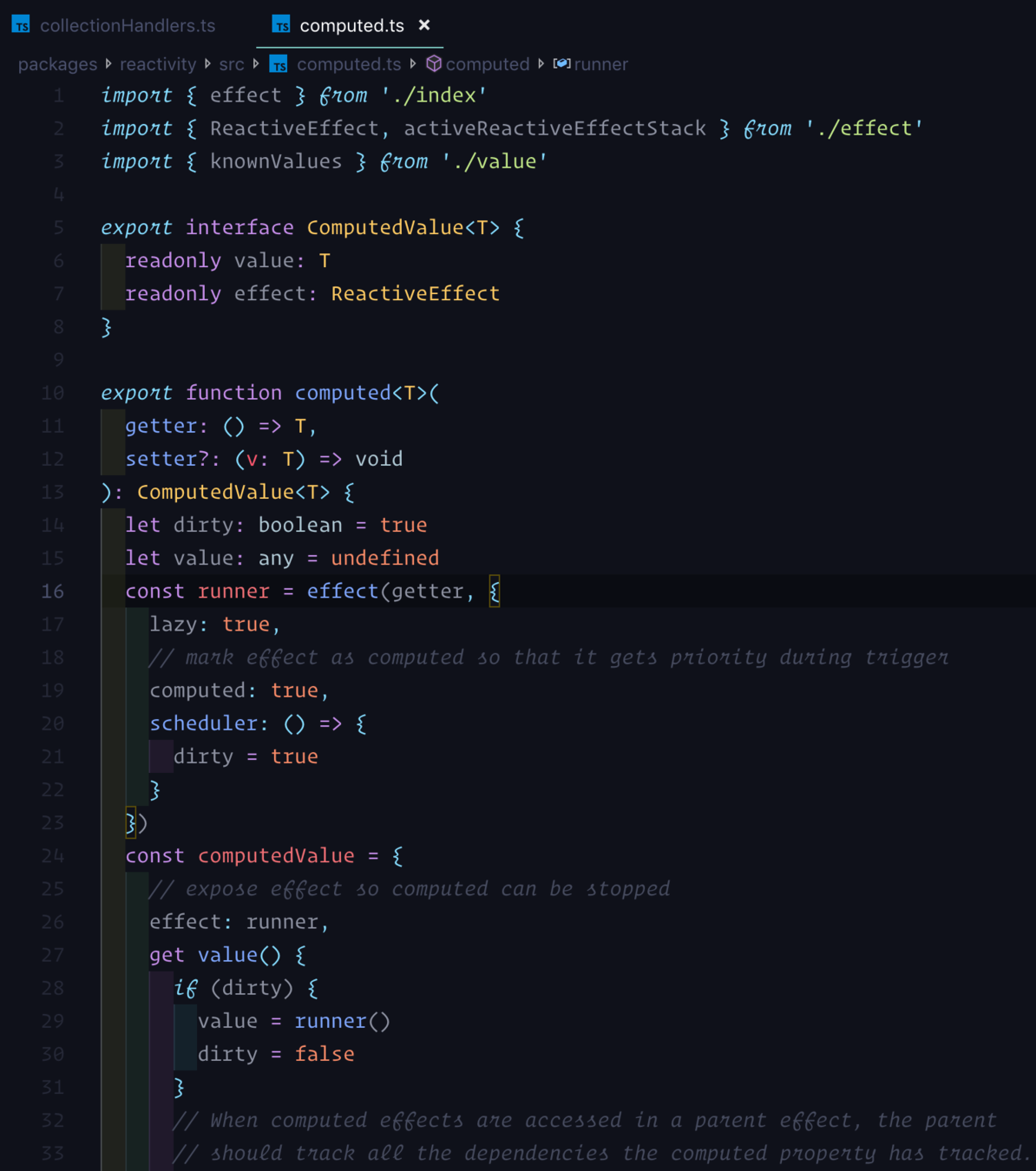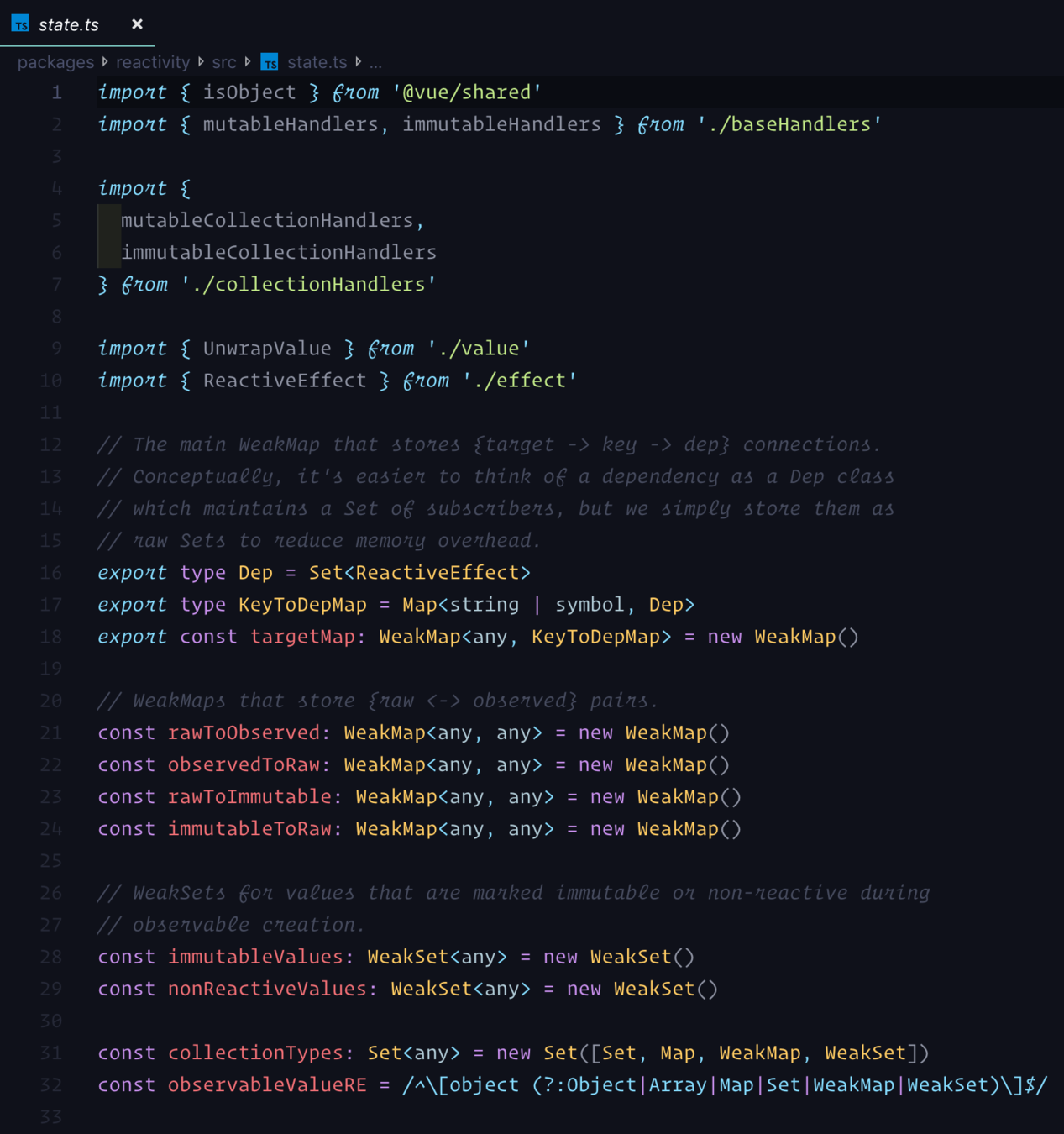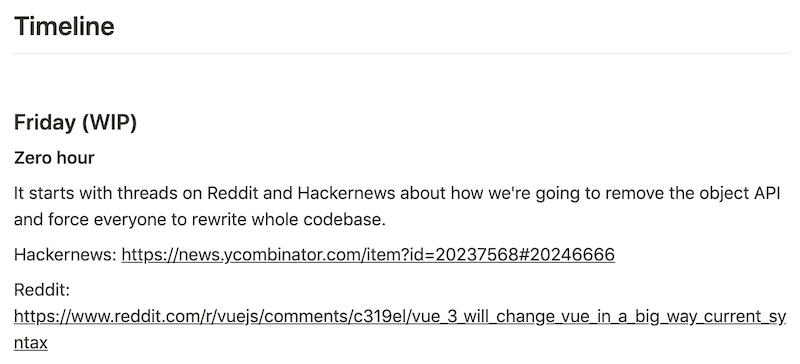What to Expect

A Bit About Me
- Among the first members of Vue core team
- Not a JavaScript or front-end developer by profession
- Living and working in Munich, Germany 🍻
- Open-sourcerer
-
v2.6.10 ( released March 20, 2019)
-
333KB full development, 30.30KB minified+gzipped
-
1,010,596 npm weekly downloads
-
146,015 GitHub stars (2nd in JavaScript, 3rd overall)
-
3,034 commits, 279 contributors
-
20 active core members in 11 countries, 6 core team emeriti, 31 community partners
The Numbers Til' Now*
* as of Aug 7, 2019

Things Will Continue to Work
- Template syntax will remain 99% the same
- Most changes are additive
- Mixins will still be there (but there's a better option!)
- Yes, even filters!
- Migration helper and guide are planned

A Better Core
- Organized into sub-packages
- Written from scratch in TypeScript
- Better type information
- Better editor/IDE support with Vetur
- TS knowledge required for core contribution



No More Caveats
-
Object property addition/deletion and direct array item mutation can't be observed in v2.x 🔗
-
Vue 3 using Proxy = no more caveats
-
A compat build with
Object.definitePropertywill be available for unsupported browsers (IE11)
Smaller Size
- Tree-shakeable by design
// 2.x
import Vue from 'vue'
Vue.nextTick(() => {})
const reactiveObject = Vue.observable({})// 3.0
import { nextTick, observable } from 'vue'
nextTick(() => {})
const reactiveObject = observable({})- Affected public APIs:
Vue.nextTick,Vue.observable,Vue.version,Vue.compile,Vue.set,Vue.delete - Internal helpers (transition, slot…) will also be optional
- Paves way for more features in the future
Portals
-
Allow rendering DOM outside of a component (i.e. anywhere on a page)
-
Currently supported via a semi-official plugin (portal-vue) 🔗
-
Great for legacy or cross-framework applications
Fragments
-
Allows returning multiple root nodes from a component
-
Implicit declaration syntax
-
Useful when dealing with a list of children (
td,li) and/or for better semantic
<template>
<div class="wrapper">
<p>An element</p>
<slot>A slot</slot>
<FooComponent />
</div>
</template>
<script>
export default {
components: {
FooComponent: () => import('@/components/Foo')
}
}
</script><template>
<p>An element</p>
<slot>A slot</slot>
<FooComponent />
</template>
<script>
export default {
components: {
FooComponent: () => import('@/components/Foo')
}
}
</script>New Template Compilation Strategy
-
Templates are divided into dynamic blocks ( if/else, for, slot)
-
Each block only needs a single flat array to track dynamic nodes
-
Update performance is determined by the amount of dynamic content instead of total template size
-
Watch Evan's keynote @Laracon 2019 for more details

Function-based API
-
Arguably the biggest, most controversial change ever introduced

-
Demo 🔗
-
Again, purely additive!
-
Code organized by feature instead of options
-
Encapsulation & component composition
-
Full TS support
-
Better compression / minification
-
Final syntax still TBC
-
A converter(s) might be available




Miscellaneous Proposals
-
Implicit attribute fall-through removal 🔗
-
Optional props declaration (
this.$props) -
Render function API change
-
Functional components now only written as plain functions
-
Async component creation to be explicit
-
More on https://github.com/vuejs/rfcs
-
Subject to change!
Documentation Overhaul
-
Vuejs.org to be moved to VuePress
-
Weekly meeting & catchup
-
Collaboration on Notion.so
-
Upcoming annual sprint being planned


